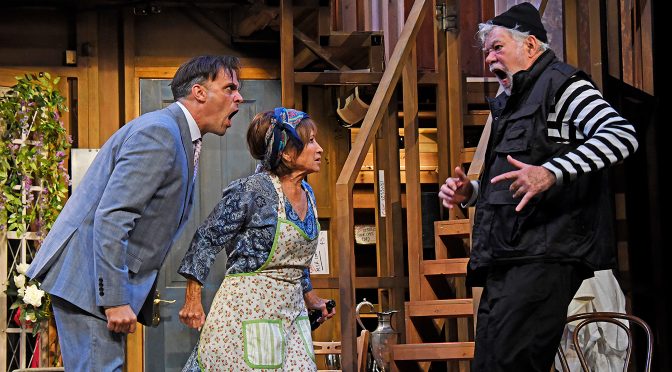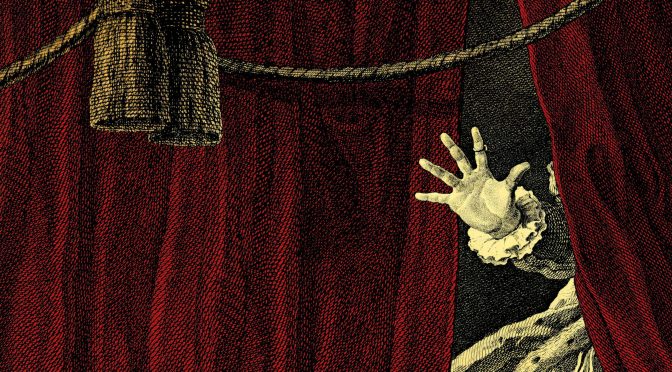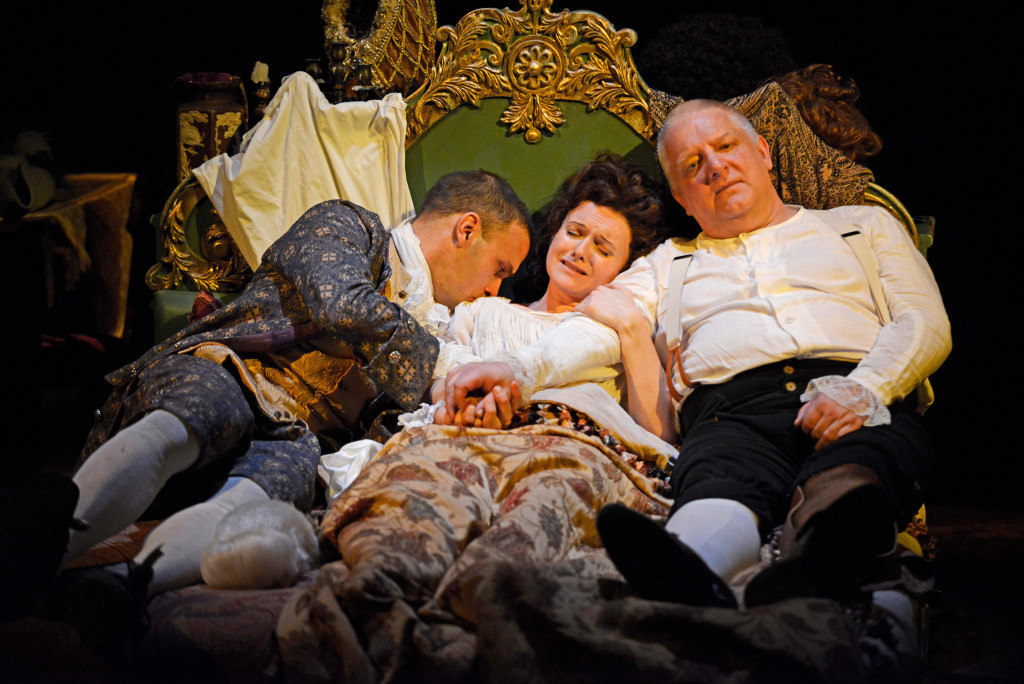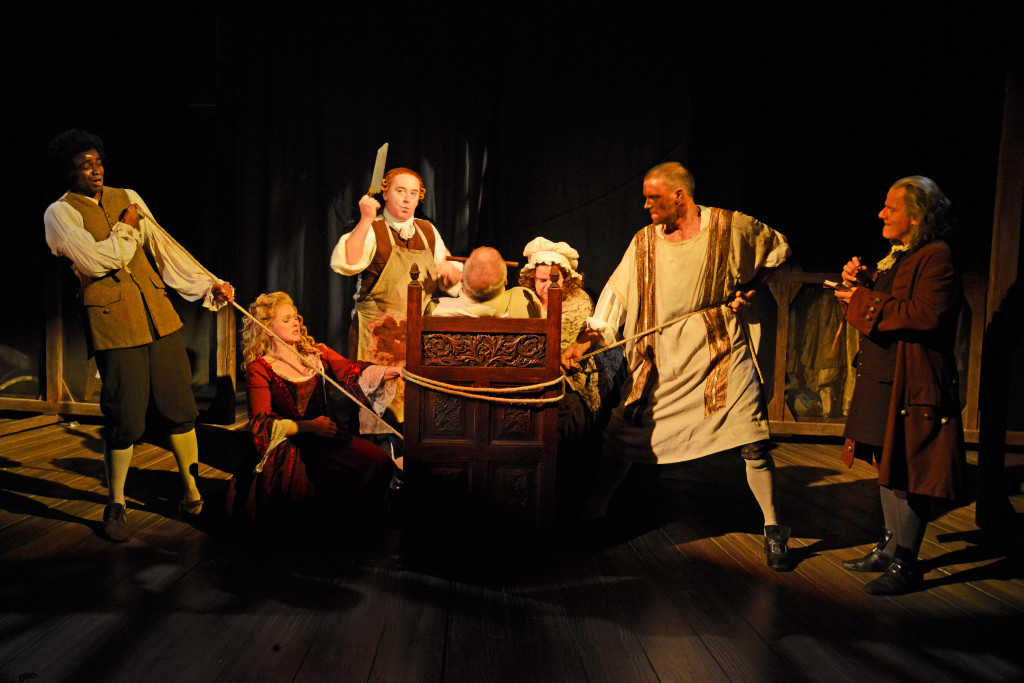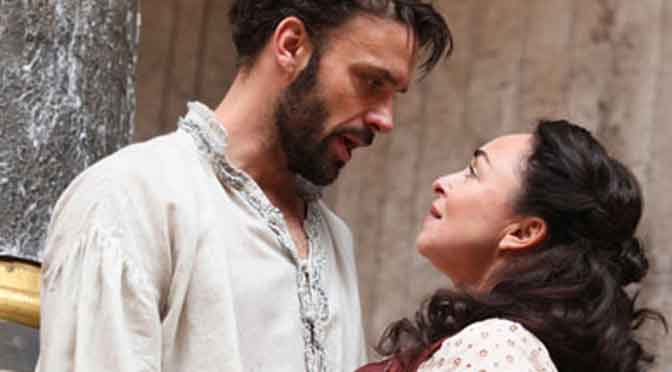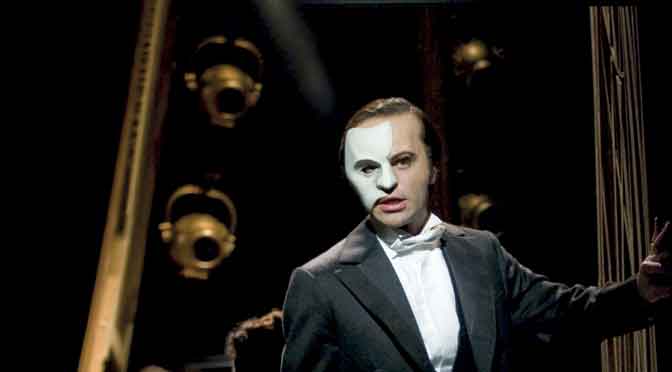Is Michael Frayn’s comedy classic fool proof? I’ve always laughed at the antics of the theatre troupe that we see in rehearsal, behind the scenes and then performing. Frayn’s clever three act structure is a joy in its own right. This play is a guaranteed to make you laugh.
Frayn adds a love of theatre to the genre of farce and some strong characters who all add humour. There’s gentle fun poked at these thesps – their pretentions, insecurities and gossiping – that creates charm. Getting to see what goes on, and what goes wrong, builds brilliantly to a fiasco of a performance that delights.
The script is so strong, and every role sure to get giggles, that blogging about a particular production becomes a matter of pointing out highlights. Celebrating the play’s 40th anniversary, this revival boasts Felicity Kendal living up to her character’s name – Dotty. And there’s a strong performance from Matthew Kelly as the ageing alcoholic Selsdon who has a great time with his character’s deafness.
Who tickles you most is a tough call. But I was particularly impressed with Joseph Millson who plays leading man Garry. One of the more physical roles, which always gets applause, Millson is also great with his character’s tongue-tied moments. The irony that he criticises playwrights but can barely string a sentence together is delicious. By the end he is practically barking single words to indicate props missing or in the wrong location.
Alexander Hanson is another highlight in the role of the show-within-a-show’s director, Lloyd. Joining the action from the auditorium, his weariness as he climbs the stairs to the stage gets laughs before he even opens his mouth. Hanson deals with Frayn’s fast paced dialogue expertly, delivering insults superbly.
As for the real director here – Lindsay Posner – experience with the show pays off. Having directed a revival back in 2011, there is a confidence that again makes it tempting to see the show as easy work. Of course, it isn’t! Any good farce is exacting – they require precision – and Noises Off is a very good farce. All those sardines and doors that confuse the characters are just as tricky to deal with for real. And making each mistake look genuine is even harder. That Posner and his cast make it all seem so easy is something to make a lot of noise about.
Until 15 October
Photo by Nobby Clark

